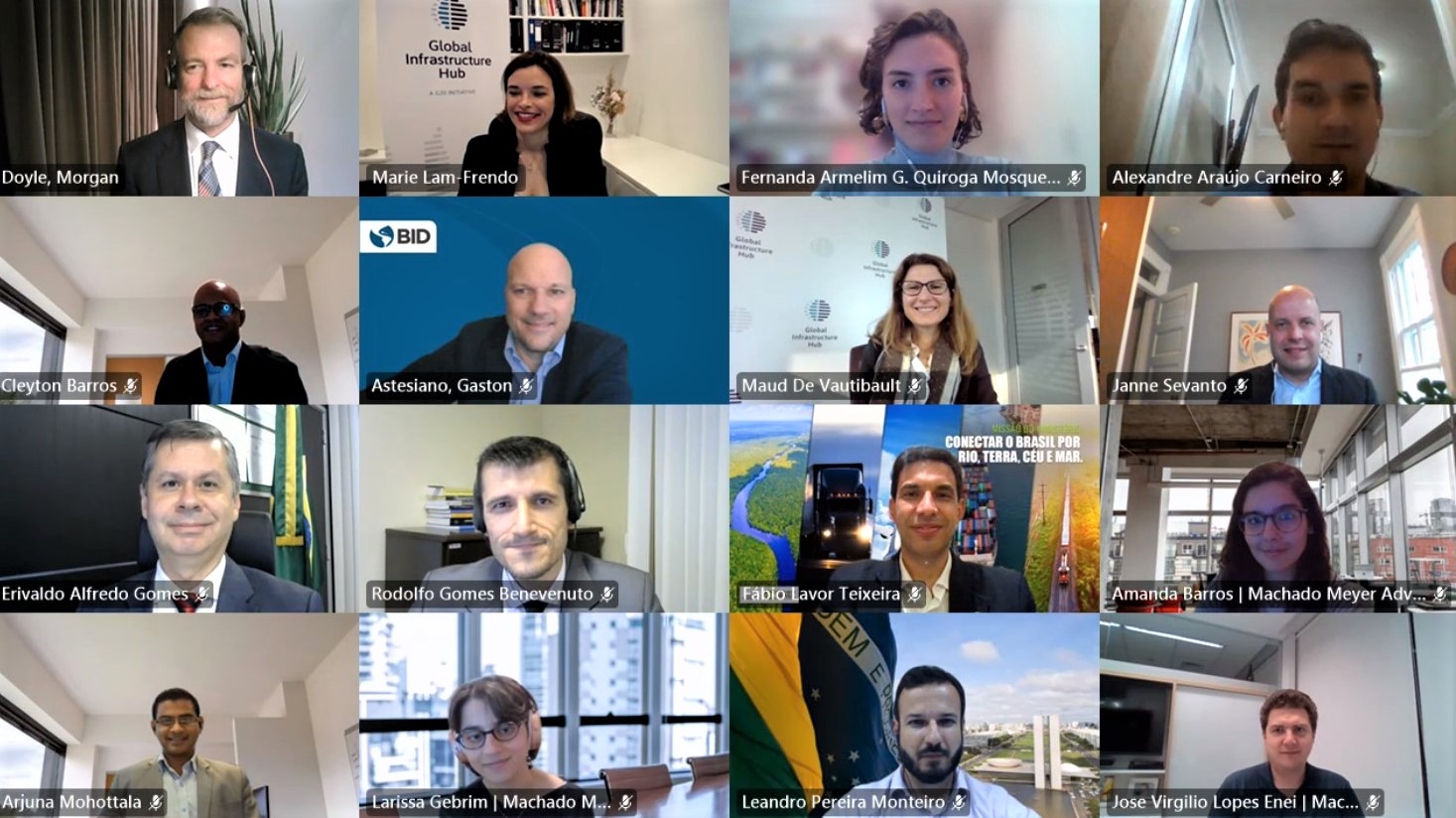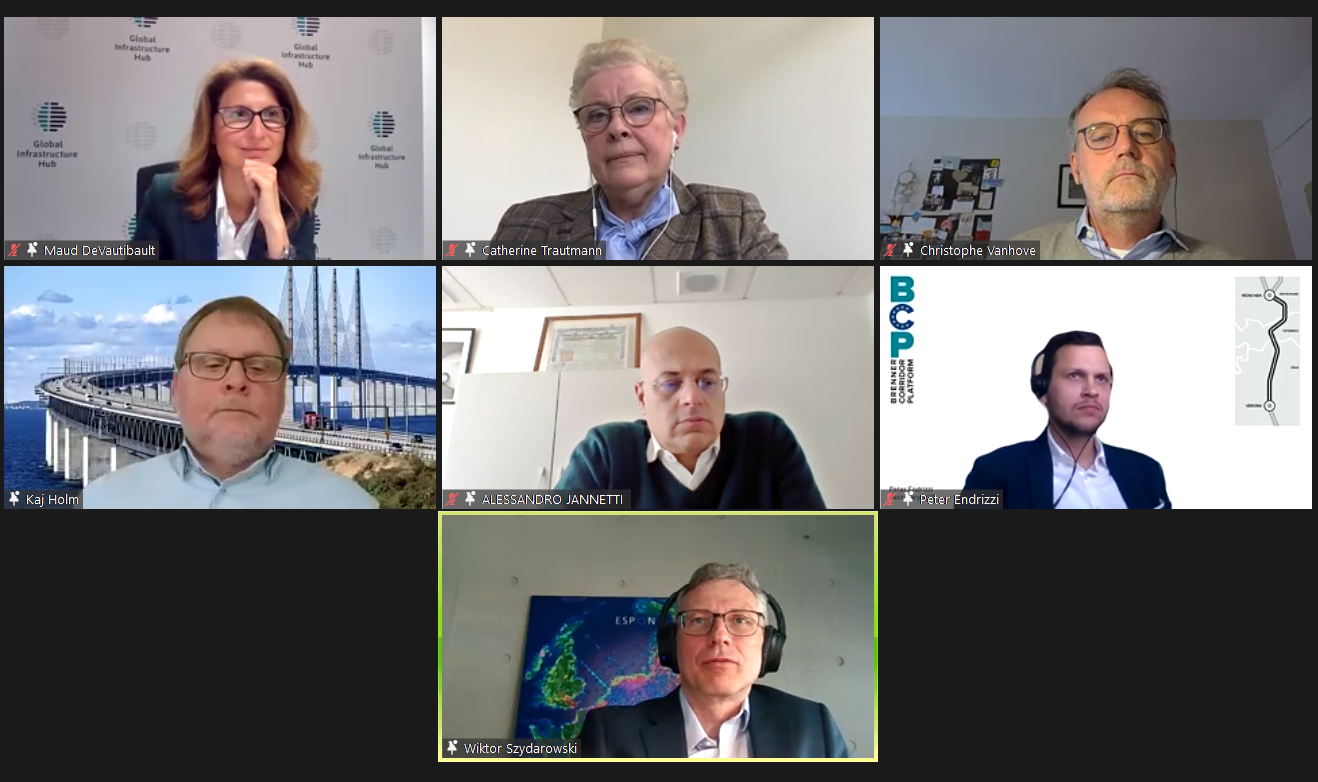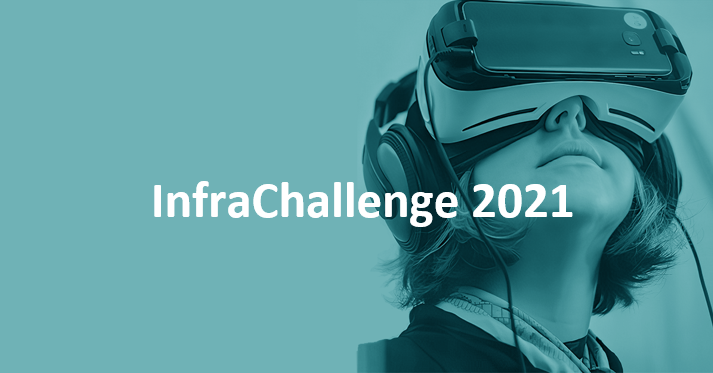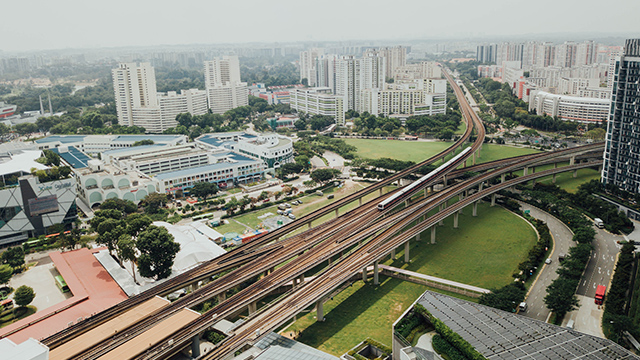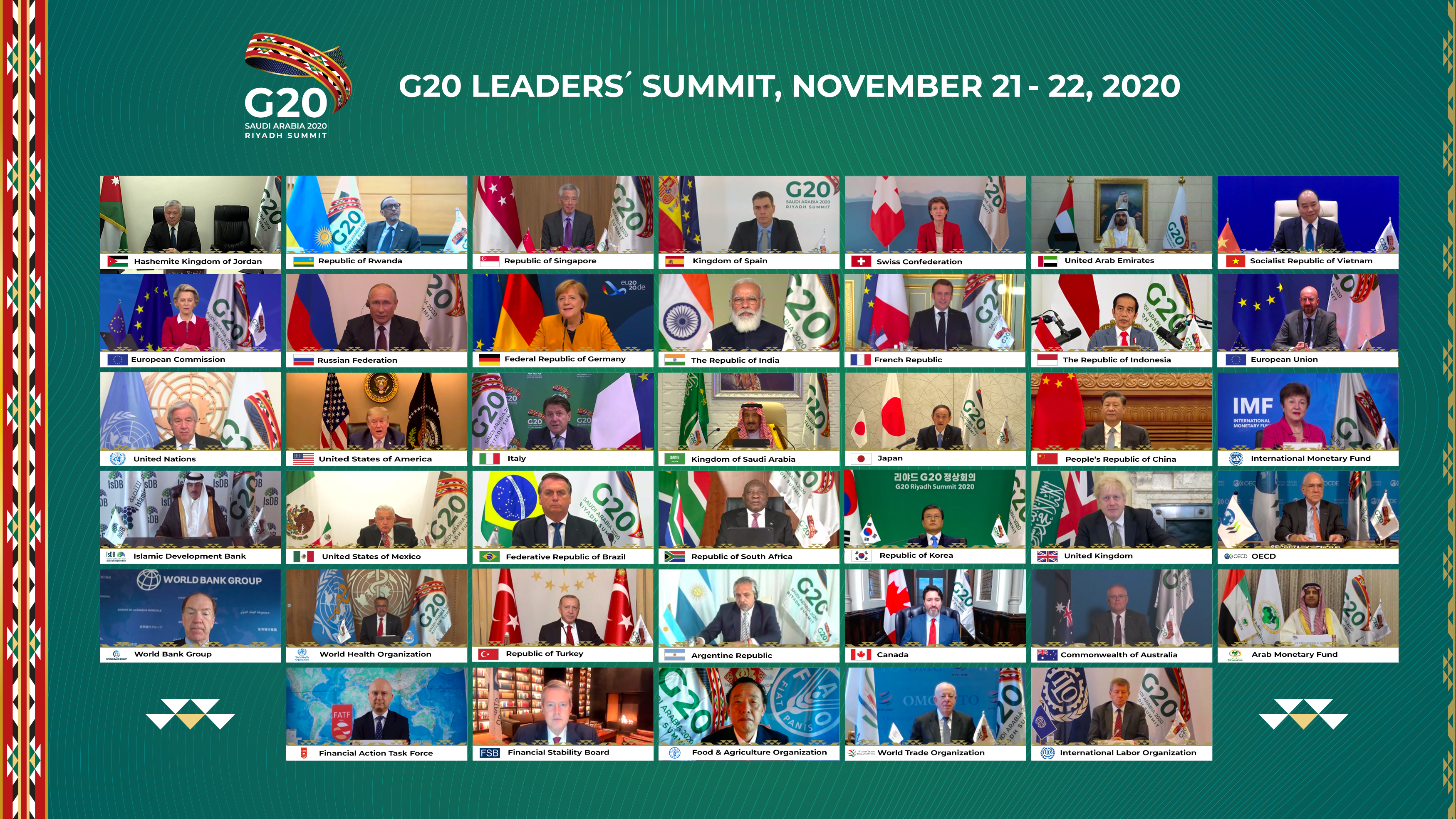Filter by
288 results found
Articles
Brazil is positioned to attract more private sector investment into infrastructure and to bring further bankable projects to market following an 18-month engagement program between the Global Infrastructure Hub (GI Hub) and the Brazilian Government.
Read time: 2 minutes
Published
27 May 2021
View news


News
The G20 Finance Ministers and Central Bank Governors (FMCBGs) met yesterday and issued a Communiqué outlining their collective commitments and priorities. The Communiqué cites several GI Hub tools that will help G20 countries and others harness the transformative potential of infrastructure and attract private investment in infrastructure.
Read time: 2 minutes
Published
07 Apr 2021
View news


Events
Global Infrastructure Hub recently hosted a presentation and panel discussion of Connectivity across Borders, our latest reference guide, which presents global practices for the successful delivery of infrastructure that crosses national borders.
Read time: 1 minute
Published
11 Mar 2021
View news


Events
A recent webinar co-hosted by Jacobs and the Global Infrastructure Hub focused on turning inclusivity frameworks into practical results in infrastructure planning and delivery.
Read time: 2 minutes
Published
17 Feb 2021
View news


News
InfraChallenge is looking for practical and scalable tech-based ideas for building and maintaining better, more resilient infrastructure.
Read time: 2 minutes
Published
03 Feb 2021
View news


News
The latest milestone of Global Infrastructure Hub’s Brazil Country Engagement Program has been completed with a gathering of infrastructure leaders from Brazil for an inception workshop on the SOURCE platform.
Read time: 2 minutes
Published
26 Nov 2020
View news


Events
The interactive workshop was a lively and comprehensive overview of how the circular economy can be a framework for economic growth solutions and highlighted the roles that governments around the world can play to enable circularity in infrastructure.
Read time: 2 minutes
Published
30 Apr 2021
View news


Events
This week the Global Infrastructure Hub in partnership with Infrastructure Australia hosted the first meeting of our international forum of infrastructure bodies.
The forum is a small group dedicated to sharing best practice amongst organisations in G20 and other countries that undertake independent, long-term infrastructure planning in their jurisdictions.
The purpose of the forum is to create a platform where I-Bodies from across the world can meet and exchange ideas, experiences and learnings.
Read time: 1 minute
Published
01 Apr 2021
View news


Articles
Last month Infrastructure Australia released its infrastructure Priority List for 2021, revealing a record number
of new investment opportunities, with 44 new proposals added to the list in response to COVID- 19.
A $59 billion project pipeline was identified, with six high priority projects, 17 priority projects, 48 high
project initiatives and 109 priority initiatives.
Read time: 2 minutes
Published
05 Mar 2021
View news


News
Cross-border infrastructure is essential for connectivity. The GI Hub has created a reference guide that presents key learnings and global practices for successful cross-border projects, drawing from a comprehensive literature review, analysis of case studies and the input of international experts in cross-border projects.
Read time: 1 minute
Published
09 Feb 2021
View news


News
Read time: 6 minutes
Published
21 Jan 2021
View news


News
Leaders of the G20 have met for the last time under the Saudi Presidency to address the most pressing challenges of our times, with the vision to take further steps to overcome the pandemic while building an inclusive, sustainable and resilient future for all.
Read time: 3 minutes
Published
23 Nov 2020
View news


News
InfraChallenge 2021 invited ideas for building and maintaining better, more resilient infrastructure. Discover who made the Top 20.
Read time: 2 minutes
Published
16 Apr 2021
View news


Events
Last week Maud de Vautibault, Director of Practical Tools and Knowledge at the Global Infrastructure Hub participated in a roundtable discussion with the World Association of PPP Units and Professionals (WAPPP)
Read time: 1 minute
Published
31 Mar 2021
View news


Events
Discover how you can get involved with InfraChallenge 2021, applications close 12 March.
Read time: 1 minute
Published
05 Mar 2021
View news


Events
The future of infrastructure mega-projects was explored recently by an international panel of experts in a webinar co-hosted by the Columbia University School of Professional Studies and Global Infrastructure Hub. The event took place as the global community begins looking towards a period of post-pandemic recovery and what the future of infrastructure may look like.
Read time: 3 minutes
Published
08 Feb 2021
View news


News
Newly trained African infrastructure specialists poised to help close $3 trillion infrastructure gap
Africa’s unmet infrastructure need is estimated at nearly $3 trillion by 2040, a new training program aims to drive investment to help close Africa’s infrastructure gap.
Read time: 3 minutes
Published
15 Dec 2020
View news


News
53 members of our InfraTech Leaders Ecosystem – from more than 25 public and private entities – met for the first time to discuss ‘quick wins' and strategic priorities based on the World Bank's InfraTech Policy Toolkit, developed earlier this year to support the Riyadh G20 InfraTech Agenda.
Read time: 1 minute
Published
06 Nov 2020
View news



